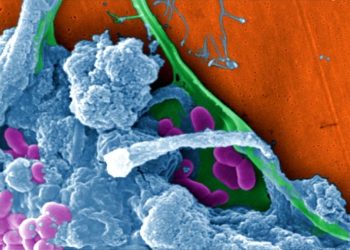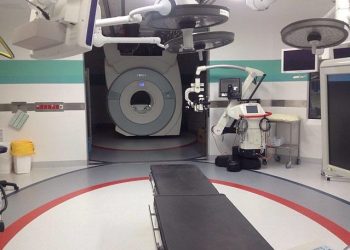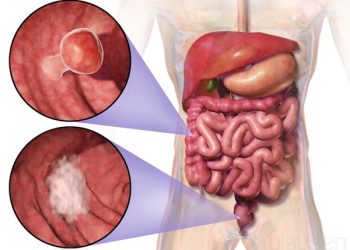A personal statement is often a critical factor in the admission process of a medical school. Through the personal statement, the student contemplates upon the events that inspired and motivated him/her to apply to medical school and also emphasizes to the admissions board that she/he has a compelling rationale for pursuing medicine in their school.
If you’re applying to a med school, you should keep in mind that combined with your interview performance, your personal statement can account for 60% (or more) of your total admissions score. Hence, it is important to make a strong, positive impression on an admissions committee, right at the beginning, that is, while preparing the personal statement. Remember, your personal statement plays a large part in determining your success by setting you apart from other applicants.
In short, your personal statement should answer the two questions the admissions officers might have looking at your application: 1.”Why You?” and 2. “Why Medicine?”
Dr. Ruth Berson has a few words of advice to the students wondering what the medical college wants from him:
“My view is that the field of medicine is at the confluence of two rivers – the people river, and the science river, and that medical schools would like to know what those two things mean to you. I believe medical school admissions committees wish they could implant a tiny chip in your head, so they could observe how you feel while you go about your pre-health activities involving people and science. The next best thing would be for you SHOW them how important people are, and how important science is, to you. How these two powerful rivers come together to carry you to the inevitable goal for someone who feels these passions: medicine.”
What are the ingredients of a successful personal statement?
The American Medical College Application Service® (AMCAS®) says if you’re applying just to MD programs, then you have a single personal statement to write – within 5300 characters (including spaces) – roughly corresponds to 500 words or 1.5 single-spaced pages. It also says:
“Use the Personal Comments essay as an opportunity to distinguish yourself from other applicants. Consider and write your Personal Comments carefully; many admission committees place significant weight on this section.”
If you are planning to craft a short and impressive personal statement as required by the AMCAS, you should consider these points, say the experts who have served in medical school admissions in reputed colleges.
— Can you think of a few lines to get the attention of the admissions officer? Give an intriguing introduction. (in the first paragraph.)
— You have an anecdote, a story to illustrate what kind of person you are? Tell them ! (in para two.)
— Have you encountered any deeply affecting life experience? Share your reflections ! (in para 3 and 4)
— You thought, after your life experience, getting into the medical school seemed the most logical thing to do? Convince them ! (in para 4.)
— You are sure of the direction of you want to take. Sum it up ! (in last paragraph 5.)
Tips From An Advisor #1
So, what should your personal statement include? Kate Fukawa-Connelly, Director of Health Professions Advising, Princeton University, an experienced mentor, tells students to put their best self forward when crafting their personal statements.
“The personal statement is an unfamiliar genre for most students—you’ve practiced writing lab reports, analytical essays, maybe even creative fiction or poetry, but the personal statement is something between a reflective, analytical narrative, and an argumentative essay. You want to reveal something about yourself and your thoughts around your future in medicine while also making an argument that provides evidence supporting your readiness for your career. Well ahead of when you’re writing your personal statement, consider taking classes that require you to create and support arguments through writing, or those that ask you to reflect on your personal experiences to help you sharpen these skills.
As you draft your essay, you may want to include anecdotes from your experiences. It’s easiest to recall these anecdotes as they happen so it can be helpful to keep a journal where you can jot down stories, conversations, and insights that come to you. This could be recounting a meaningful conversation that you had with someone, venting after an especially challenging experience, or even writing about what keeps you going at times when you feel in danger of giving up. If it’s more comfortable, take audio notes by talking into your phone.
While reading sample personal statements can sometimes make a student feel limited to emulating pieces that already exist, I do think that reading others’ reflective writing can be inspirational. The Aspiring Docs Diaries blog written by premeds is one great place to look, as are publications like the Bellevue Literary Review and Pulse, which will deliver a story to your inbox every week. Check with your pre-health advisor to see if they have other examples that they recommend.”
Tips From An Advisor #2
Angel Gómez-Cintrón, MD, MPH, is a MSK Radiologist and Residency Program Director in UT Health San Antonio, Texas. He has a sound piece of advice for those applying for the Electronic Residency Application Service®. His message is valid for students preparing personal statements as well.
Hey #MedStudentTwitter! Do you know what you should never include in your ERAS application?
A lie. Or a pseudolie. Or a half-truth. Or fiction.
You never know who will read your application – what they know and who they know. #match2022 pic.twitter.com/klUCQ94wkp
— Angel Gómez-Cintrón, MD, MPH (@skeletalrad) June 11, 2021
To sum up, be yourself, use your own voice and reflect honestly about your experiences. Let your conviction that you see a future in the field of medicine come out strongly in your personal statement. Rest will take care of everything !
(Top Image Credit: Image by StartupStockPhotos from Pixabay)

















